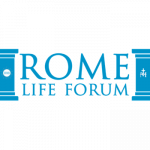Written by Wanda Skowronska
3rd Oct 2023
Fr. Benedict J. Groeschel, C.F.R., Franciscan priest and psychologist, one of the founders of the Franciscan Friars of the Renewal, died after praying the rosary on the feast of Saint Francis, Oct 5, 2014. Fr Groeschel was one of several Catholic psychologists in America who have integrated the insights of theology with psychological practice – others including Paul Vitz, William Kilpatrick and Richard Cross as well as the recent graduates from the Catholic based Institute for the Divine Mercy University (formerly the Psychological Studies Institute) in Virginia. Fr Benedict Groeschel was a giant among them, one to whom other Catholics in the healing professions can look to for his profound understanding of the mind and the spirit.
Pro lifers may be interested to hear that he also co-founded the Good Counsel Homes for homeless mothers and babies. Richard Bell, Good Counsel Executive Director, recalls asking Fr Groeschel about thirty years ago why someone was not doing something ‘to help homeless mothers go back to school, find a job (and as he would often say) ‘take that next good step in life?’[1] The result was the opening of the Good Counsel Homes which have run for around 30 years. In addition, he was a strong pro-life witness and advocate. He did not shy away from going on marches and speaking at many rallies to defend the unborn. He was also arrested, along with a bishop and another friar, at the notorious Dobbs Ferry, NY abortion mill and spent several days in the Valhalla prison.
Fr. Benedict often remarked that he looked forward to going to Purgatory, because it seemed to him to be just like Jersey City where he grew up. He also added:
After This Life … I know what I’m going to be doing in purgatory. I will be reading The New York Times, drinking bubble-gum soda, and eating Twinkies.[2]
Fr Benedict Groeschel was born in 1933 and was one of six children. He entered the Capuchin Franciscan novitiate in 1951 and was ordained a priest in 1959, taking the name Benedict Joseph. Perhaps the heavenly irony of taking on this name revealed itself in time, as St Benedict Joseph Labre is the patron saint of those with psychological problems. Indeed, Father Groeschel was to go on to study psychology, being awarded a master’s degree in counseling from Iona College in 1964 and a doctorate in psychology from Columbia University in 1971. Interestingly, in an era when many Catholic psychology students were running after Carl Rogers and espousing the ‘me generation’, humanism, Fr Benedict Groeschel kept a sure footing in his Catholic faith, saw through the psychological Zeitgeist of his age, and was able to integrate his faith with psychology in an authentic union, so earnestly sought for by the church Fathers at Vatican II.
He also met Paul Vitz, an American psychologist who had been teaching the humanistic creed during the 1970s but wanted to escape. Fr Groeschel not only helped Vitz to escape the humanistic stronghold forty years ago, but also assisted in Vitz’s conversion to Catholicism, leading to Vitz’s becoming a leading exponent of faith-psychology integration.
As a priest, seminary professor, psychologist, and writer he did many things during his life. He became chaplain of Children’s Village, a facility for emotionally disturbed children in Dobbs Ferry, New York in 1960. He remained there for 14 years. He was then appointed a professor of pastoral psychology at the New York archdiocesan seminary, St Joseph’s in Yonkers, a professional link that would remain for virtually his whole life. He also taught at Fordham University, Iona College, Maryknoll Seminary, and, starting in 2000, at the Institute of Psychological Sciences in Arlington, Virginia, where he gave an annual course on integrating religious values into counselling and therapy for people under stress.
Father Groeschel also founded St. Francis House in Brooklyn, a facility for young men from troubled backgrounds in 1967. He also, at the request of Cardinal Terence Cooke of New York, established a spiritual development program for priests and others at Trinity Retreat in Larchmont, New York. He counselled many priests for various difficulties throughout the past decades, being instrumental in having some who had left the priesthood, return to their priestly life.
Fr Groeschel left a legacy of writing which is of interest to anyone not only interested in psychology, but also interested in seeing how a deeply spiritual person did not get lost in the whirlwind of the soixante huiters, the western destabilisers of the sixties and seventies of last century who were focussed on themselves and utopian world-building. His writings include Spiritual Passages: The Psychology of Spiritual Development (1992), The Reform of Renewal (1990) and Travellers along the Way: Men and Women who Shaped my Life (2010).
Of the adulation of selfist, humanistic psychology, the era in which he principally lived, he said:
All sorts of disciples of the self-actualization theories are really dualists who separate their own personal satisfaction from responsibility to the rest of the human race, even to their own families …[3]
He did not totally denigrate humanistic psychologist Carl Rogers but pointed out that he left out the spiritual dimension of human life which seriously weakens any attempt to build the inner strength of a person.
Although motivated by the most humane considerations, Rogers particularly avoids examination of a higher order beyond the individual in his or her concept of adjustment.[4]
He also spoke with insight on several psychological problems and how they impacted on an integrated Christian life. While he realised many serious psychological illnesses had a major biological substrate and needed medication, there was also a kind of millennial angst, a post Auschwitz self -loathing of westerners of themselves. Here he was speaking more of the varied states of anxiety which afflict our age. He saw self –hate as the origin of many psychological difficulties – not to be confused with a genuine horror of sin – but a real self-hatred, which could express itself in passive (or not so passive) aggression. He stated that ‘God has first loved us – we should be messengers of God’s love to those who hate themselves.’[5] He thought that seeking the true nature of this divine love and sharing it with others is a prime psychological/spiritual task of any pilgrim on earth. Fr Groeschel certainly practised what he preached in simple, visible ways as well as unseen ways when counselling others. He was never happier than with the homeless on Christmas Eve when he spent hours being with and giving food to those down and out in the big cities.
While being very astute about the era in which he lived, he always had his eyes set on the extraordinary mystery of the human person and on the horizons of eternity which surround and flow into our daily lives. Christ, he insists, ‘is the center not as a point of gravity but as a single source of light in an utterly dark and lifeless universe.’[6] Fr Benedict did much to reveal the light through his loyalty to Christ, his writings, humour, compassion, and wisdom. He remains forever as a great example of a Catholic psychologist.









